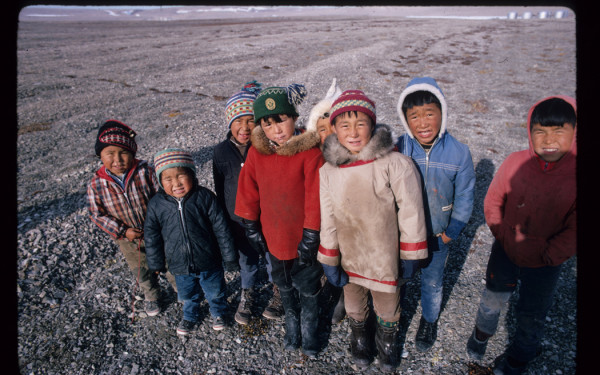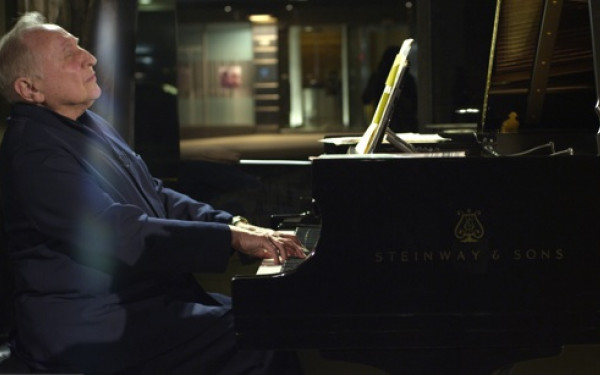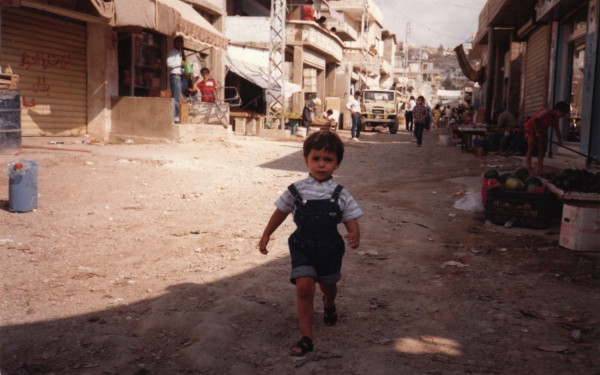Docville Series : Waiting for August
Premiering in Quebec on January 29th as part of the Docville series, Waiting for August is a 2014 documentary film exploring the thematics of coming to age, longing and absence within a difficult socio-economic reality.
Directed by Teodora Ana Mihai — a Romanian by birth who moved to Belgium at the age of 8 —
the film was shot entirely on location. It reenacts the tear-jerking true story of a self-sufficient family who lives within the unenviable reality of life in a housing block on the outskirts of Bacau, Romania.
“What I found most interesting about the film was the theme of economic immigration is very often dealt with in terms of numbers and statistics” stated Charlotte Selb, Director of Programming at RIDM, who Docville is convened by. “I have seen a few fly-on-the-wall documentaries like this one, but usually they’re from the mothers’ perspective — I had never seen a film from the point of view of the children with no parental figure whatsoever.”
The film’s themes are clear for all to see early on in, they include money and education — classic difficulties of any poor family, all within the context of the protagonists coming of age. In post-Communist Romania, where the promise of democracy has disappointed the wider population, the state has shrunk and has failed to massively improve living standards.
Seven parentless siblings dominate the narrative until the return of the mother, Liliana Hamec, who had been working in Turin as a housemaid to an elderly Italian couple.
‘‘Its a very common occurrence for mothers from Eastern Europe to go to Italy or France, wherever they can make a living,’‘ told Selb.
The director searched for an appropriate family for eight months until she found the Hamecs, who agreed to give her no holds barred access to their lives.
They have been left under the care of their eldest sister, and our protagonist, Georgiana, who assumes the role of mother whilst grappling with her own upbringing, seemingly without any maternal or paternal influence beyond infrequent calls to her mother.
Georgiana is on the precipice of adolescence, just emerging from puberty [her fifteenth birthday is evoked in the film], and she takes the added responsibilities with an admirable humility, refusing to frame herself as a victim.
Her younger siblings, however, accept their mother’s absence more begrudgingly, perplexed at the necessity of her absence.
Despite this naivety, they display a certain maturity: one of the youngest children correctly proclaims “A child wants what it sees and what another child eats.”
“[Ultimately] the kids you see in the film are brave, smart and have a pretty strong resilience, due to them growing up without their mother.” explained Selb.
“The only help we get is from me working abroad,” implores Liliana, as her children question whether she has abandoned them.
“I left to work to cover the expenses, but I didn’t abandon you guys,” she asserts.
Told from a unique perspective, the film combines the issues of a coming of age with social realism. The political undertones are inevitable as the debate on the labour movement’s freedom [amongst other issues] gains traction in the European Union.
This is Docville’s fourth year in its current format.
Next month, on the 18th of February a yet-unannounced documentary on sport in the Soviet Union will be screened. A different international documentary movie is premiered in Montreal on the last Thursday of each month.
Docville offer students a deal: 7 tickets for $50, and can be used by groups and individuals alike.
Cinema Excentris (3536 St. Laurent Blvd.) // Jan. 29th // Screening starts at 8:00 p.m.




_600_375_90_s_c1.jpeg)

